Gig Work is Awful
I did gig work for 3 months in 2021. Read this and weep. Then probably stop using gig laborers, unless you tip them wildly and take some level of responsibility for their pay and working conditions.
“Everyone should wait tables at some point in their life.”
In early 2020 (don’t laugh yet), I was moving to a new city, and I decided it was the perfect time to fulfill this life-lesson requirement. I would wait tables while I looked for a job in business. I’d do it for a few months, I would learn the lesson of table-waiting, and I would continue on.
I got to Chicago. I unpacked. And the world shut down.
You don’t need me to explain what the first years of Covid looked like for the restaurant industry. Needless to say, I could not get a job waiting tables. I went back to Oklahoma for a bit. I applied to all four jobs that were available in America. Eventually, I downloaded Task Rabbit and started booking odd jobs.
I’ll tell you about Task Rabbit in a second. But here’s the scoop: I still need to wait tables at some point. Also, while working for Task Rabbit, I decided this: everyone needs to do gig work at some point in their life.
Task Rabbit is an app that lets people hire other people to help them with household tasks—running errands, cooking, home repairs, along with more random tasks that you need a warm body for, like waiting in line. As a “Tasker,” you create a profile that lists your skills, your prices, and your availability. People reach out and ask you to assemble a lamp or chop veggies or organize their closet. I’d pick times to work and hope that my clients were mostly normal. They mostly were.
You’re in someone’s space. You have to stay there until time runs out, or until the task is complete, or until they tell you they don’t have a hammer and you head to Target to get one. Why Target? Because sure, they’re paying you by the hour, but you drove 40 minutes to get there, and if you don’t finish building two sets of drawers before their friends come over at 8, you’ll have to drive 40 minutes home and then 40 minutes back to finish building the drawers, then 40 more minutes back home again. You don’t get paid to drive. Target sells hammers, a fact I now know.
You get offered food. Should you take it? I made a rule to never take it, which helped me to reject it when it was not appealing, which was almost always.
You have to pee. Is the bathroom close to where you’re working—can they hear you pee? Is it dirty or clean? Did they leave their house and forget to tell you where the bathroom is? Can you find it without looking like you’re snooping? Is it possible to snoop when you’re already emptying someone’s kitchen cabinets into boxes? Can you please hold your pee until you get from their now-ex-boyfriend’s apartment to the new apartment? Would you mind driving?
You have to chat. Do you want this? What about this? Oh, you got this candy for your nephew and haven’t mailed it yet? Tell me more about your nephew. Where do you work? Yes, I know what Conagra is. You used to live in LA? Cool. Can you hire me for a stable, corporate job?
You have to work. Yes, we can get this TV up onto that table. You have to give opinions. No, I think the rug would be better long-ways. You have to do it right: Sorry, I’m out of packing paper, I didn’t want your dishes to break when I’m gone and the movers carry these boxes down two flights of stairs tomorrow.
You have to finish the task or be confident in saying my time is up, I’m leaving you to finish packing on your own.
It’s weird. It’s just weird.
Task Rabbit is a lot of lonely people. The tasks on the app are the things family and close friends do for free; if you’re paying someone to do them, you don’t have someone helpful already near.
Task Rabbit is a lot of grunt work. People have to be annoyed enough about a task to download an app and ask a stranger to come to their home.
Task Rabbit is a lot of logistics, sending message after message, guessing how close together you can schedule different tasks, trying to stay at a place until things are complete.
Women would rather have a strange woman come into their home than a strange man. I did multiple breakup moves, which struck me as a delightful and specific niche that I could absolutely have expanded on if my long-term goal was to star in a rom-com about rival moving companies where my girlboss gig work infringes on the business of a very grumpy, very strong man who inherited his moving company from his parents who are now dead and he had Other Plans but had to come home to run the family business because of Reasons.
I could write about supposed upsides of Task Rabbit—connecting with people, helping people who don’t have anyone else, blah blah blah. I usually love physical labor. I love doing things with my hands. I could have made bank if I were 30% more confident in my stud finder + ability to mount a TV. (Should Stud Finder be the name of the rom-com I sketched above?) But honestly, Task Rabbit was a drag
The New York Times referenced Tony Hsieh’s book a few years ago, and I took a screenshot of this quote: “Most of the frameworks for happiness conclude that there are four things required:
perceived control
perceived progress
connectedness (meaning the depths of relationships)
being part of something bigger than yourself.”
As I wrote this article, I asked myself how gig work is different from being a mover for a company or a freelance creative. I kept coming back to these four components of happiness. If I had been a mover for a company, I would have had more control, more progress, and more connectedness. I would let my boss know my job preferences, get to know my coworkers, and aim for promotions. If I were a freelance photographer, I could have all four: I’d define the purpose of my business, build a network of clients, and control the direction of my little company.
Task Rabbit, on the other hand, gave me none of these things. I could not control who I worked for—there’s no way to adequately screen as many people as I needed to book jobs for. I could not progress in my skills in any measurable way. I’d meet people for just one task, so connecting was almost impossible. And I rarely felt like I was part of something bigger than myself.
One day, I got booked to do a move at what turned out to be an elderly home. When I went in, I asked for the woman whose name was on the booking. The receptionist replied, “She’s not here. What do you need?”
I explained that I was there to move her out of the building.
“Do you have boxes?” they asked.
“No, she’s supposed to have them,” I replied.
“She won’t,” they said. “Want some trash bags?”
I declined. One of the staff took me up the elevator. He, too, asked if I had brought boxes. I again said no, she hadn’t told me to.
When we approached her door, I saw a neon pink sign taped to it: EVICTION NOTICE. The date of removal had passed. I looked at the staff member. He opened the door. I couldn't see the surfaces of the bed, the counters, the window sills. Every inch was feet-deep in stuff.
He handed me a roll of trash bags.
“She’s not allowed in the building anymore. You’re on your own.”
Ideally, employment involves set hours and tasks in exchange for set pay and benefits. Gig work involves variable hours and tasks in exchange for variable pay and no benefits.
Gig work is isolating. In most other jobs, you have coworkers, people who check in on you or are generally aware of your existence. If your boss makes you cry, at least you know which stairwell to hide in.
The apps discourage communicating outside of the app. They move you from one task to the next as quickly as possible. You can’t predict demand. Should you work for twelve hours today in case the app isn’t busy tomorrow? Maybe. Will you get a big tip? Rarely. Will a 20 minute drive take 45 minutes, and once you get there you’ll do 30 minutes of work for not enough money? Probably.
There’s the possibility that you could always be working. After setting up your calendar for future weeks, you can also turn on same-day messaging, which means that someone could reach out while you’re cooking dinner and ask you to come move their rugs around or sort their pantry.
Unpredictability is destabilizing. It’s exhausting. And it’s the very core of gig work.
There’s other gig apps: Uber, Lyft, Doordash, GrubHub, Rover, the list goes on. All of them get someone to do something for you that until recently only the wealthiest people could afford to pay someone to do for them, or people would have friends do for free. All of them connect strangers. But the word “connect” isn’t quite right, because the app is in the messy middle.
It’s an app! It’s not a human connecting two humans. You don’t go to a cute little storefront and tell a cute little front desk person that you’d like them to flip through their Rolodex and give you a plumber’s phone number. Developers in San Francisco wrote code and created an automatic shut-down system and a phone line that’s overwhelmed by people whose accounts get shut down because a concert blocked traffic.
It doesn’t work. Read this essay about food delivery from Jaya Saxena and you’ll know it doesn’t work. Try to buy health insurance as a gig worker. It doesn’t work. The apps say they’re just offering a way for people to make a few extra bucks. But for many people, these apps are their only form of income. Read the essay linked in my earlier post about NYC’s Doordash drivers—you’ll learn they band together for their commute because they kept getting mugged on their way home. It doesn’t work.
Back to the story about the woman who’d been evicted. When I got home, I told the story to Julia. “That’s awful!” she replied. “Where is she now? Is she gonna be okay?”
I did not know. I did not care. When Julia said that, I realized that I’d wanted her pity only for me. I’d had a weird day at work. I’d had to navigate a situation that was very strange and sad and hard. Pity me!
But Julia was right to be worried about the woman. She was engaged with a wider view of the world. What about the structure of Task Rabbit closed me off to that form of empathy? I had to maintain a boundary, sure. My job was a limited number of hours, yes. But why did something as intimate as packing this woman’s clothes or sorting through her toiletries close me off so coldly to her humanity?
If any gig should have offered some of those features of happiness—connectedness or a sense of connection to something deeper—it was that one. But instead, it wore me out. I believe in being attuned to symbols and deeper meaning. But that day, I wasn’t.
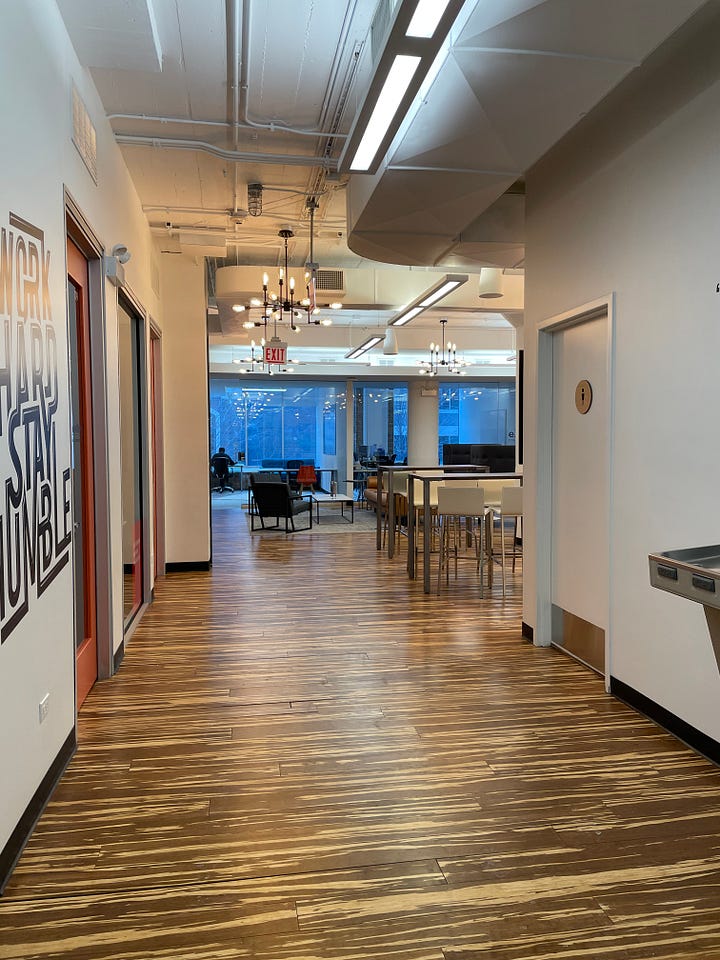

Not long after, I got booked for a “personal assistant” task, and the person booking it asked me to hop on a call first. She told me she ran a company and hired me on the spot for occasional work. She didn’t ask for my resume. As she increased my hours, I decided to stop booking gigs on Task Rabbit. The job was [euphemism for terrible], and I quit.
I had one more task gig that had become part-time. I got a call when I was there from the place where, three years later, I’m still employed.
I didn’t cry, but I wanted to. Stability. Health insurance. At that point, practically magic.
And lastly: I had the support of my family while I did gig work. It was miserable, and I wasn’t even doing enough of it to live off of. A crucial disclaimer! There are worse, harder, more unfair and even dangerous gig work stories out there. This one, however small, is mine.

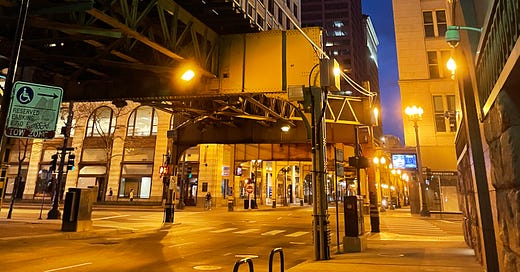



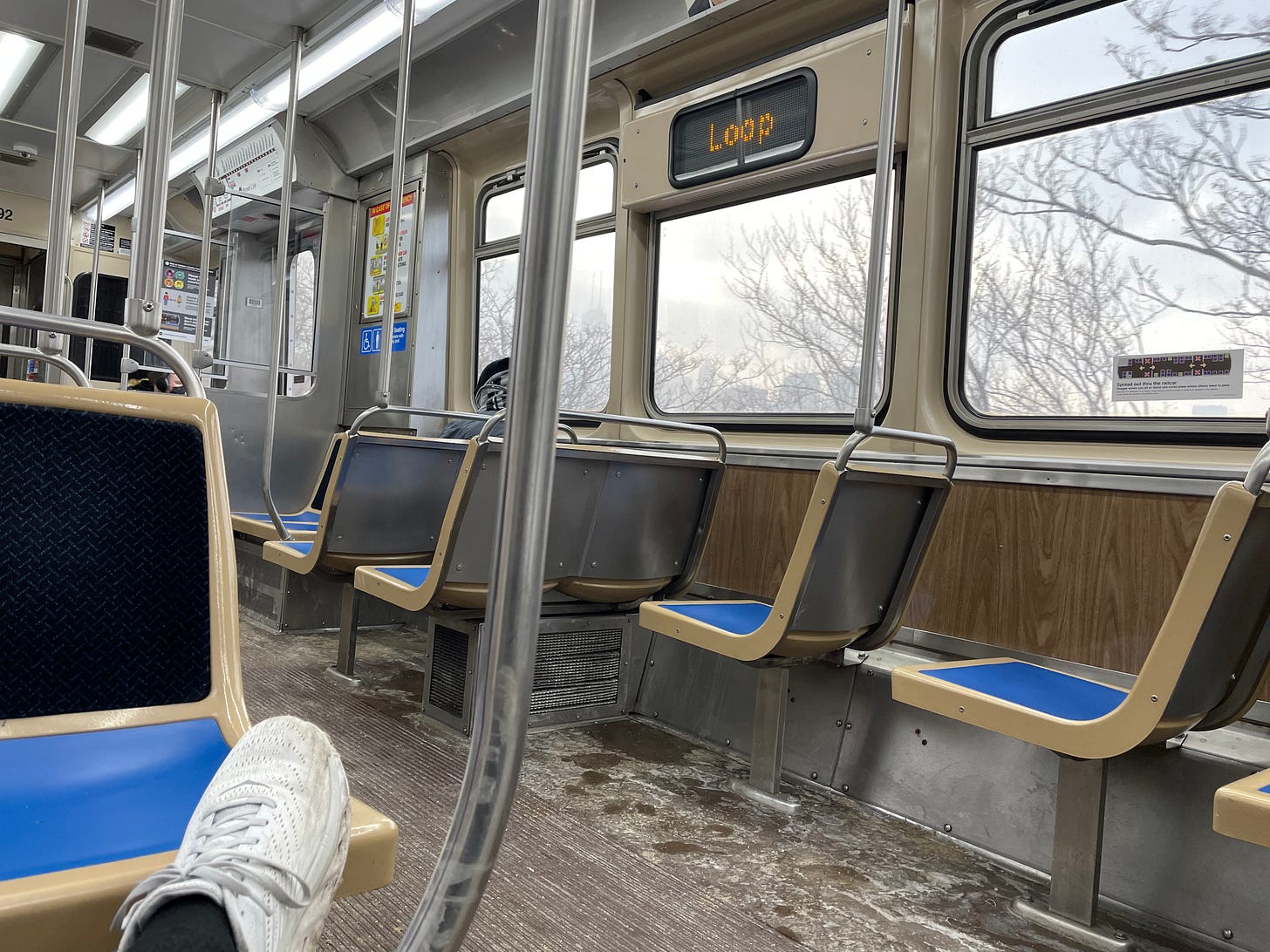
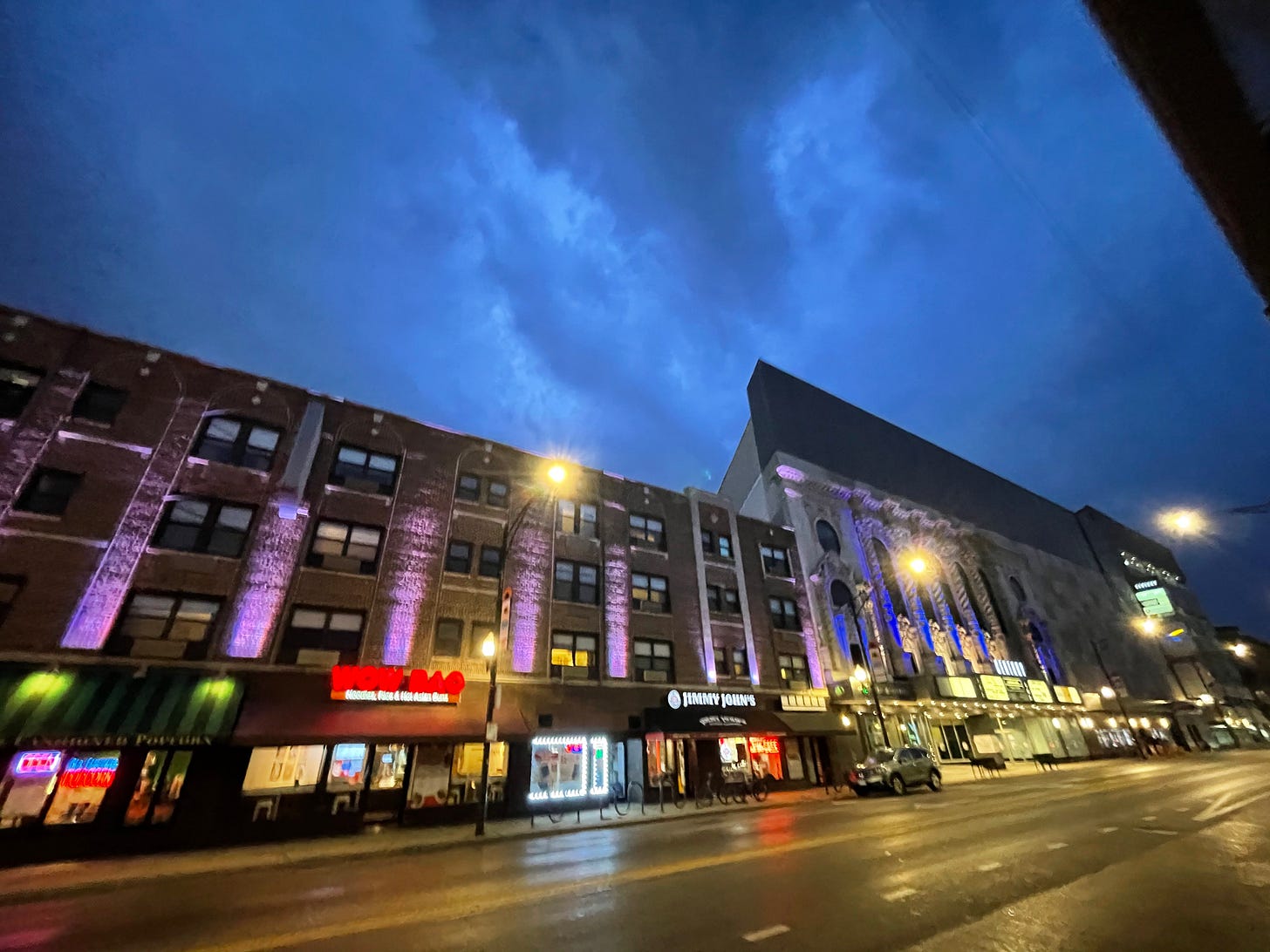
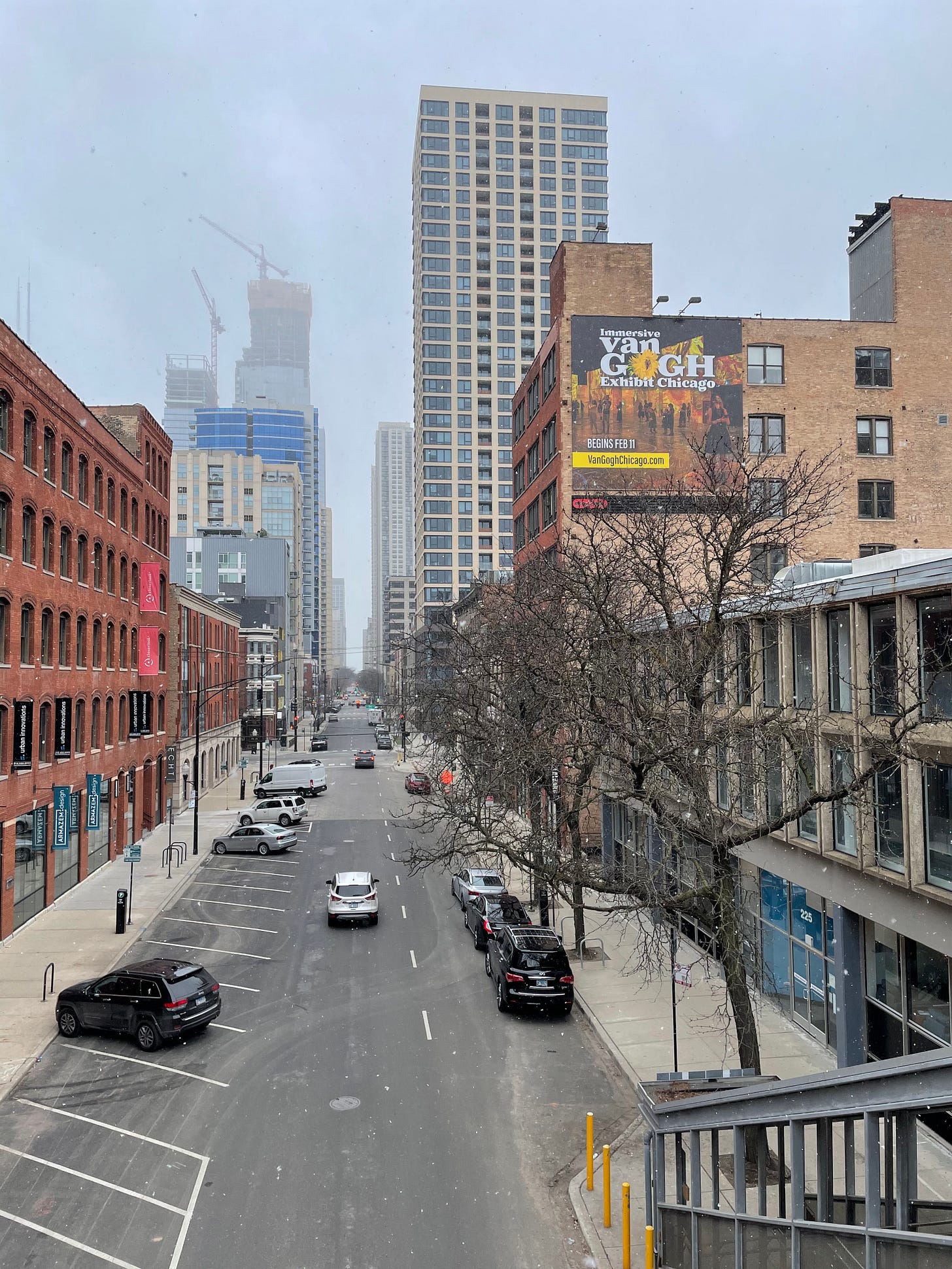
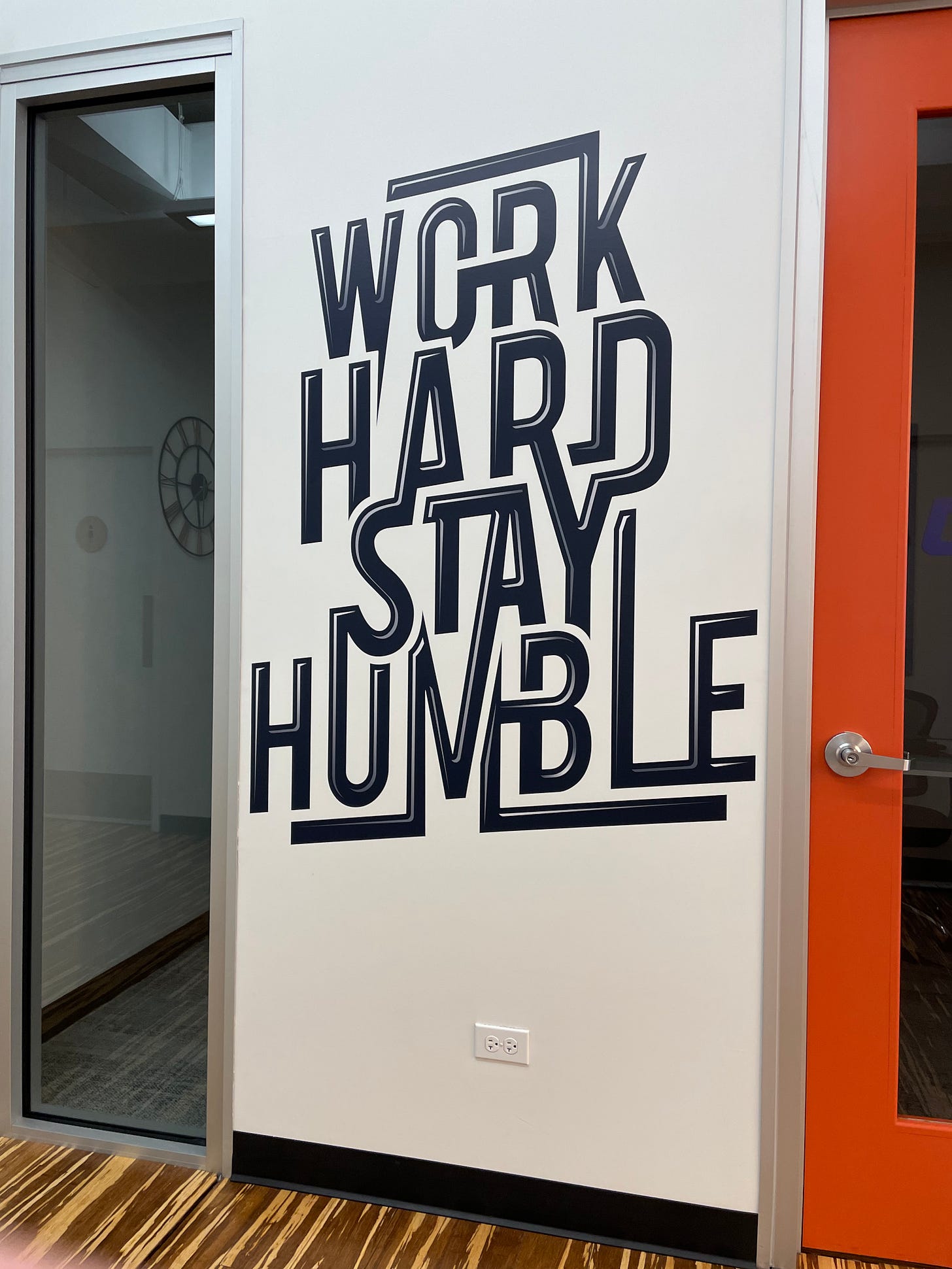

It never occurred to me that people using Task Rabbit are probably lonely because they don't have loved ones near by to help them. What a beautiful and sad insight.